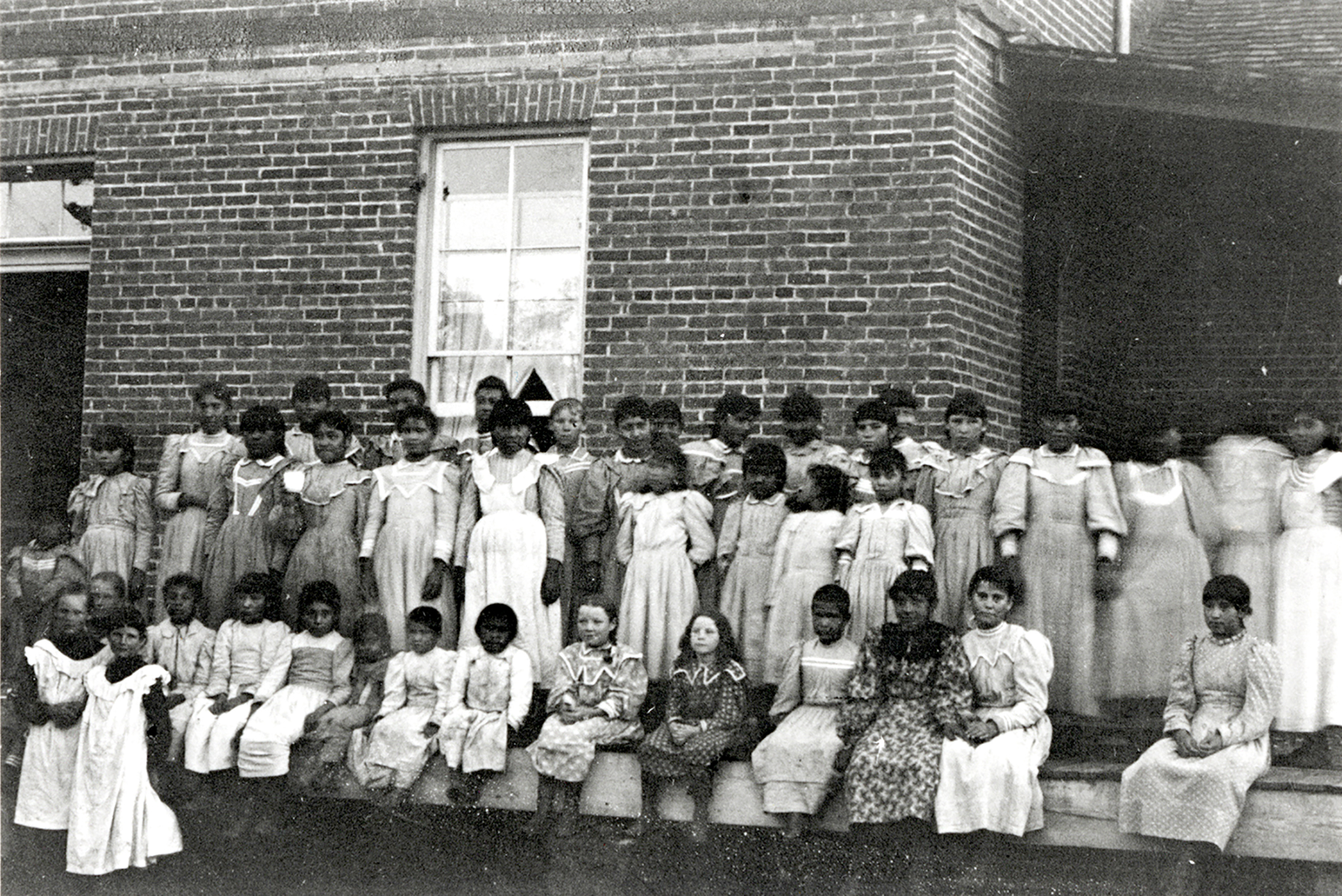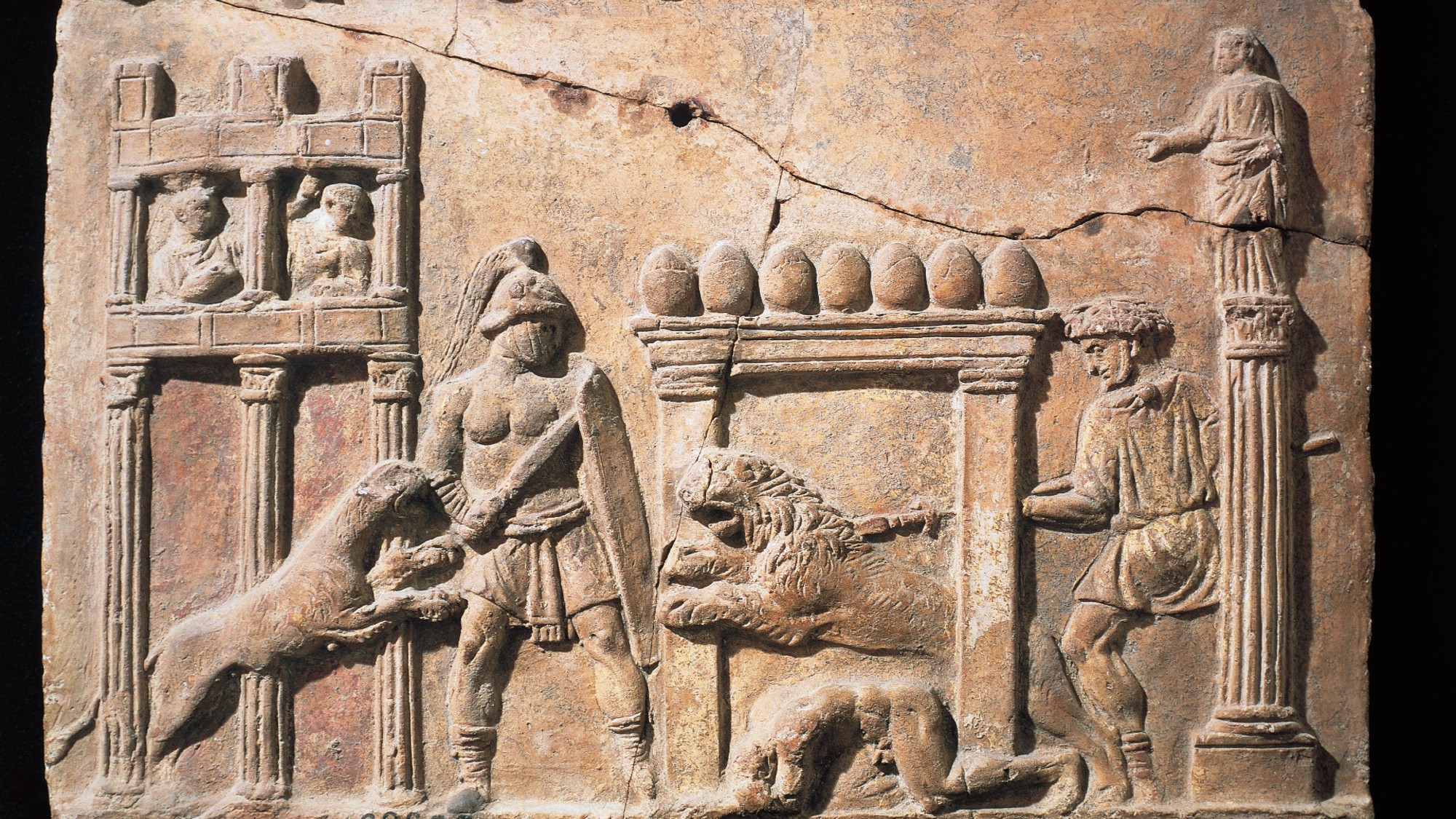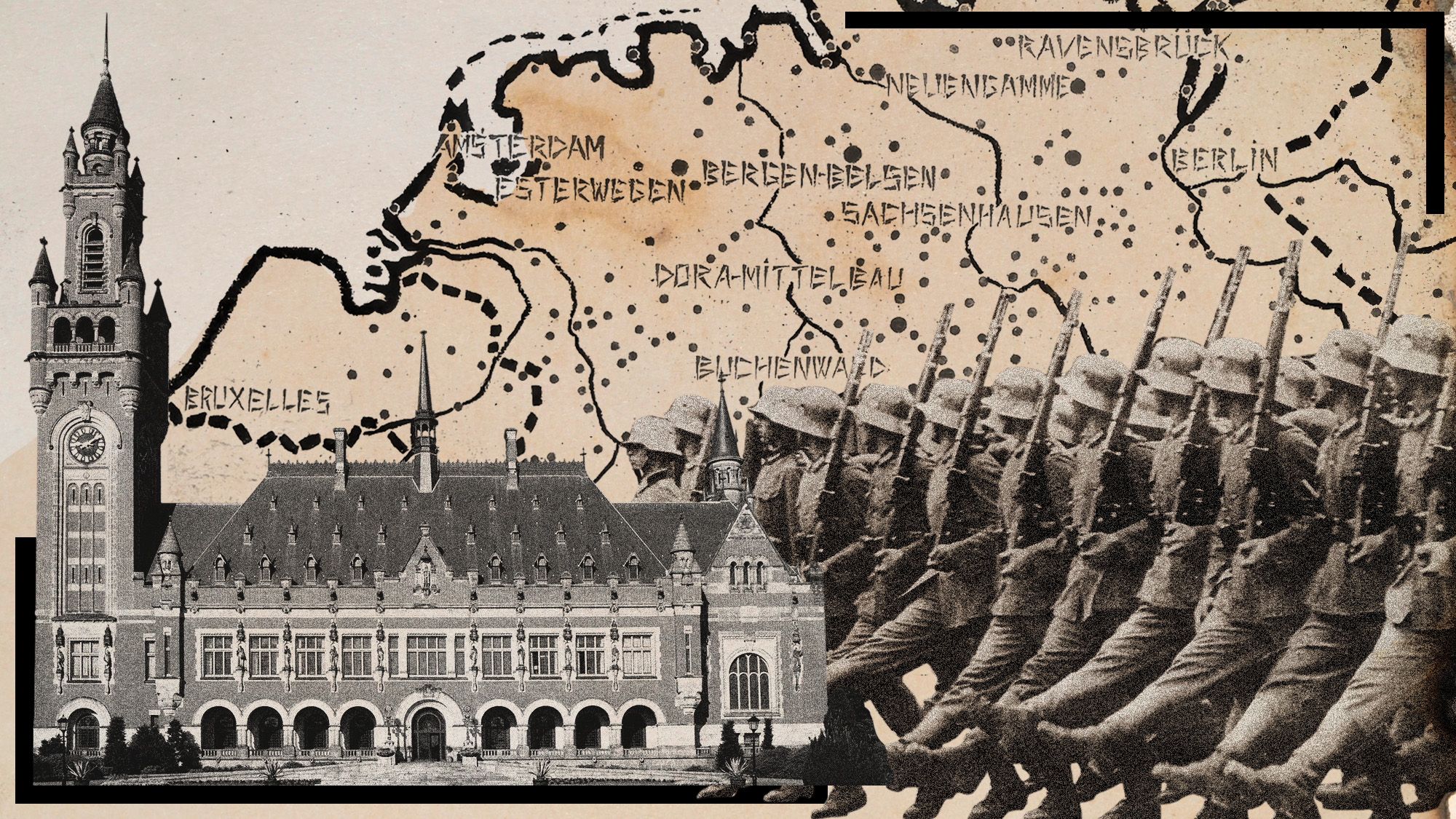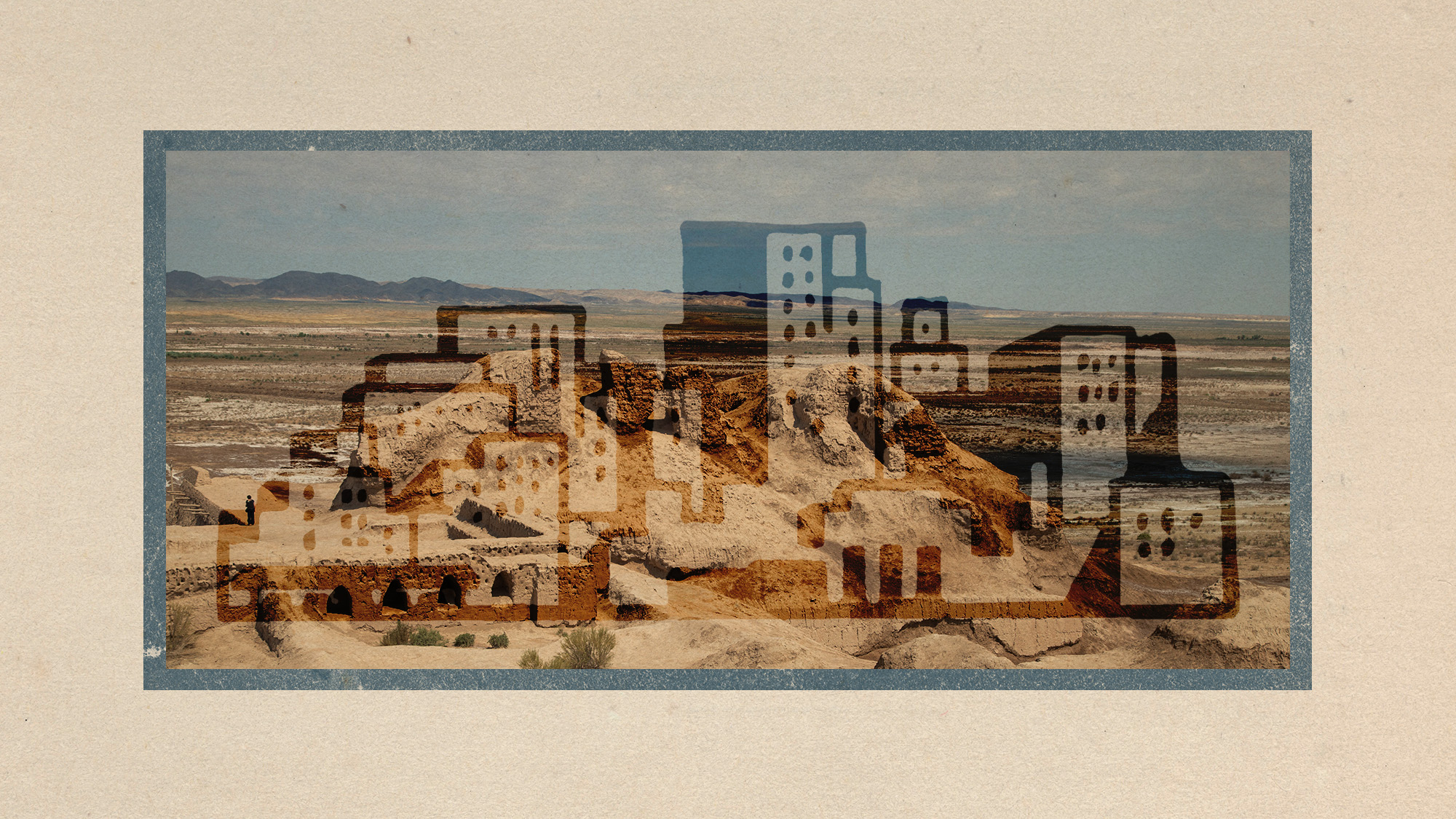New report sheds light on Colorado's history of forced Indigenous assimilation
An investigation found that forced assimilation in schools brought 'immense harm' to Native American communities


A free daily email with the biggest news stories of the day – and the best features from TheWeek.com
You are now subscribed
Your newsletter sign-up was successful
New information about the United States' long-documented history of atrocities against Native Americans continues to emerge to this day, as was recently the case in Colorado, where a new investigative report has illuminated the state's dark history of forced assimilation.
The report, helmed by History Colorado, was presented to the Colorado Commission of Indian Affairs earlier this year but only released in its entirety to the public this month. Entitled "Federal Indian Schools in Colorado, 1880-1920," the analysis concludes a year-long effort by researchers into the practices of Colorado's Native American schools at the dawn of the 20th century.
The report was a follow-up to a 2022 federal investigation that showed the national scope of the problem. The federal investigation concluded that the United States "directly targeted American Indian, Alaska Native and Native Hawaiian children in the pursuit of a policy of cultural assimilation" across 37 states. But History Colorado's report sheds light on just how widespread — and devastating — this forced assimilation was across the Centennial State.
The Week
Escape your echo chamber. Get the facts behind the news, plus analysis from multiple perspectives.

Sign up for The Week's Free Newsletters
From our morning news briefing to a weekly Good News Newsletter, get the best of The Week delivered directly to your inbox.
From our morning news briefing to a weekly Good News Newsletter, get the best of The Week delivered directly to your inbox.
What did the Colorado report find?
Authored by Colorado archeologist Dr. Holly Norton, the report examined nine historic boarding centers that were used to educate Colorado's Ute tribe, the state's original inhabitants. These schools were "intended to serve and assimilate the Ute population" into Western culture, Norton wrote.
But the Ute tribes were "very distrustful of the schools and were largely successful in resisting efforts to enroll their children," per Colorado Public Radio (CPR). As a result, most of the schools in question were forcibly populated by Navajo children from throughout the Southwest, CPR reported. Children from other tribes, including Hopi, San Carlos Apache and Tohono O'odham, were also enrolled. The facilities were spearheaded by a 19th-century initiative called the "Indian Question," which Norton described as a "set of policy decisions around the dispossession of Native land, attempted genocide and obliteration of Indigenous culture, language and political power in what is today the United States."
The Native American children at these schools were pushed into a pervasive and widespread system of cultural assimilation, according to Norton. They were forced to cut their hair and forbidden from speaking their native languages. Their cultural heirlooms were stolen, and they were made to perform manual labor throughout the day. These jobs would've been "what Euro-American society would see as gender appropriate," Norton wrote — "farming, digging ditches [and] carpentry for the boys" and domestic work for girls like laundry and sewing. Children "were severely injured regularly" as a result of this often physically demanding work. The report also cited dozens of deaths and widespread sexual abuse at schools throughout the state.
Norton concluded that these institutions were "not about reading, writing and arithmetic but about severing Native people's ties to their traditional knowledge systems." The schools would then aim to instill in the children "Euro-American ideals of religion, labor, private property and even family dynamics," while education "sat alongside physical domination, such as warfare, as a means of eradicating Native peoples."
A free daily email with the biggest news stories of the day – and the best features from TheWeek.com
How has Colorado responded?
This new report could act as a reminder of the past horrors inflicted on Native populations. Matt Miguel, a senior at Fort Lewis College — which evolved from one of the original assimilation boarding schools — told Chalkbeat Colorado that the report can "serve as a way to educate others about the history of Native people."
"We didn't forget who we are. We didn't forget our culture," Miguel told the outlet. This sentiment was echoed by Donna Chrisjohn, an Indigenous advocate, who told Chalkbeat that Native American education should "work toward healing and understanding each other better." Chrisjohn said her hope is that the report will "lead to changes beyond curriculum and lessons that build trust in the system."
Fort Lewis College President Tom Stritikus said that his institution should "double down" on serving Indigenous students. The college's board of trustees has also codified a commitment to reconciliation, in which it writes that forced assimilation "contributed to the loss of life, physical and mental health, territories and wealth, Tribal and family relations, use of Tribal languages and Tribal religious and cultural practices."
Stritikus added that Colorado curriculums should "develop the things that boarding schools very deliberately tried to take away."
Justin Klawans has worked as a staff writer at The Week since 2022. He began his career covering local news before joining Newsweek as a breaking news reporter, where he wrote about politics, national and global affairs, business, crime, sports, film, television and other news. Justin has also freelanced for outlets including Collider and United Press International.
-
 How the FCC’s ‘equal time’ rule works
How the FCC’s ‘equal time’ rule worksIn the Spotlight The law is at the heart of the Colbert-CBS conflict
-
 What is the endgame in the DHS shutdown?
What is the endgame in the DHS shutdown?Today’s Big Question Democrats want to rein in ICE’s immigration crackdown
-
 ‘Poor time management isn’t just an inconvenience’
‘Poor time management isn’t just an inconvenience’Instant Opinion Opinion, comment and editorials of the day
-
 Scientists have found the first proof that ancient humans fought animals
Scientists have found the first proof that ancient humans fought animalsUnder the Radar A human skeleton definitively shows damage from a lion's bite
-
 Newly publicized Dutch archives force families to confront accusations of Nazi collaboration
Newly publicized Dutch archives force families to confront accusations of Nazi collaborationUnder the Radar The archives were available to researchers but only recently became publicly accessible
-
 Two ancient cities have been discovered along the Silk Road
Two ancient cities have been discovered along the Silk RoadUnder the radar The discovery changed what was known about the old trade route
